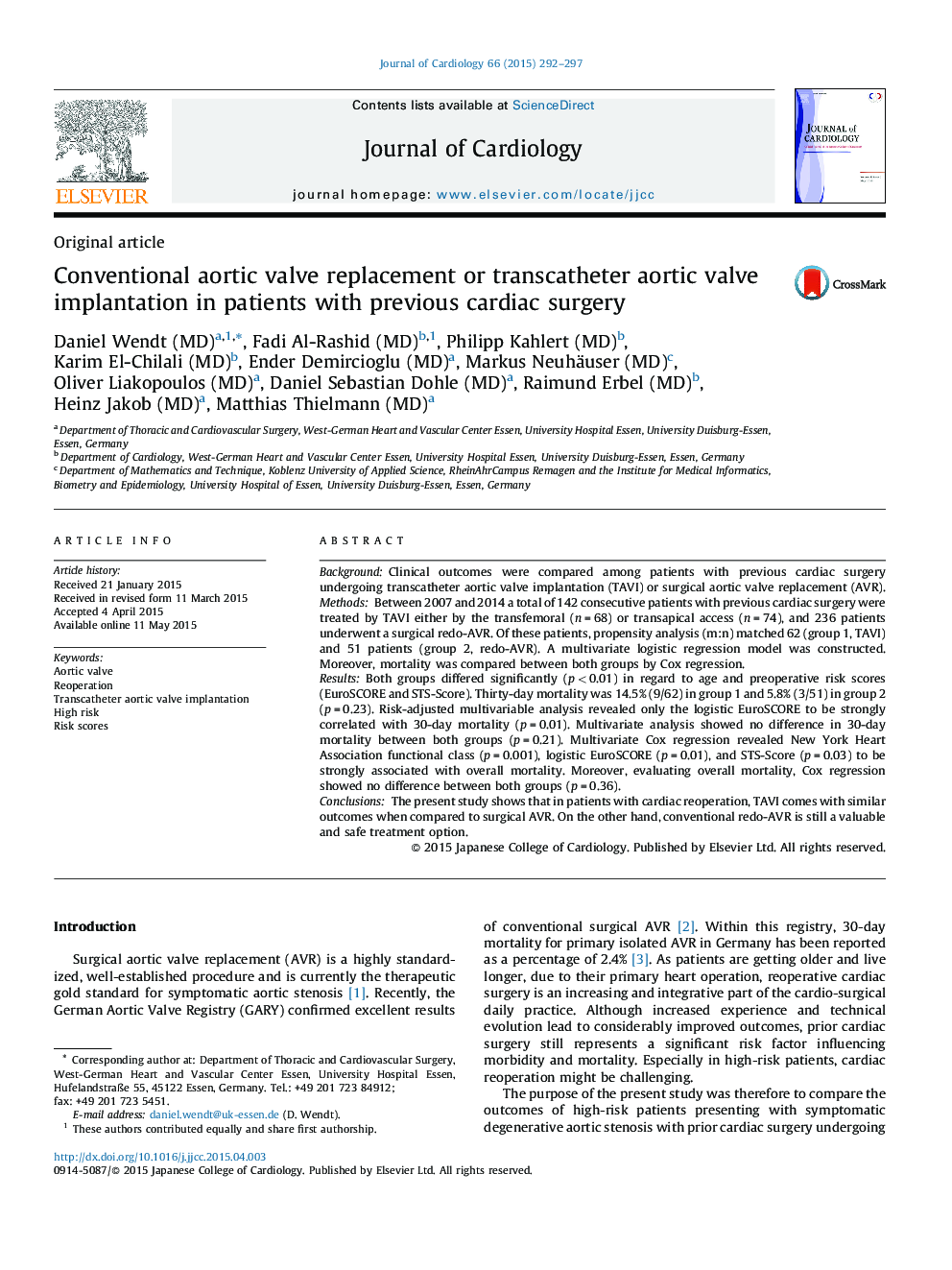| Article ID | Journal | Published Year | Pages | File Type |
|---|---|---|---|---|
| 2962922 | Journal of Cardiology | 2015 | 6 Pages |
BackgroundClinical outcomes were compared among patients with previous cardiac surgery undergoing transcatheter aortic valve implantation (TAVI) or surgical aortic valve replacement (AVR).MethodsBetween 2007 and 2014 a total of 142 consecutive patients with previous cardiac surgery were treated by TAVI either by the transfemoral (n = 68) or transapical access (n = 74), and 236 patients underwent a surgical redo-AVR. Of these patients, propensity analysis (m:n) matched 62 (group 1, TAVI) and 51 patients (group 2, redo-AVR). A multivariate logistic regression model was constructed. Moreover, mortality was compared between both groups by Cox regression.ResultsBoth groups differed significantly (p < 0.01) in regard to age and preoperative risk scores (EuroSCORE and STS-Score). Thirty-day mortality was 14.5% (9/62) in group 1 and 5.8% (3/51) in group 2 (p = 0.23). Risk-adjusted multivariable analysis revealed only the logistic EuroSCORE to be strongly correlated with 30-day mortality (p = 0.01). Multivariate analysis showed no difference in 30-day mortality between both groups (p = 0.21). Multivariate Cox regression revealed New York Heart Association functional class (p = 0.001), logistic EuroSCORE (p = 0.01), and STS-Score (p = 0.03) to be strongly associated with overall mortality. Moreover, evaluating overall mortality, Cox regression showed no difference between both groups (p = 0.36).ConclusionsThe present study shows that in patients with cardiac reoperation, TAVI comes with similar outcomes when compared to surgical AVR. On the other hand, conventional redo-AVR is still a valuable and safe treatment option.
